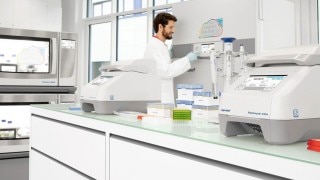MENU
MA | EUR
-
-
-
- Services pour bioprocédés
- Services pour centrifugeuse et rotors
- Services pour Mastercycler
- Services pour automates de pipetage
- Services pour congélateurs
- Services pour incubateurs
- Services pour agitateurs
- Services pour appareils de photométrie
- Service de contrôle de la température et de l’agitation
- Service pour pipette
-
-
-
-
- Services pour bioprocédés
- Services pour centrifugeuse et rotors
- Services pour Mastercycler
- Services pour automates de pipetage
- Services pour congélateurs
- Services pour incubateurs
- Services pour agitateurs
- Services pour appareils de photométrie
- Service de contrôle de la température et de l’agitation
- Service pour pipette
-
MA | EUR
-
- Centrifugeuses de paillasse
- Centrifugeuses au sol
- Centrifugeuses réfrigérées
- Microcentrifugeuses
- Centrifugeuses multi-fonctions
- Centrifugeuses haute vitesse
- Ultracentrifugeuses
- Concentrateur
- High-Speed and Ultracentrifugation Consumables
- Accessoires
- Tubes
- Plaques
- Gestion des appareils
- Gestion des échantillons et des informations
- Produits IVD
Aucun résultat trouvé
Chercher des suggestions

Making the Transition to a Digital Lab
In life science labs, digital data is everywhere – from microscopy images and raw data files to protocols, articles, and reports. And yet many labs still rely on pen and paper when it comes to lab journals. However, replacing paper lab books with a digital solution saves time and adds reliability – all without compromising security. Discover the benefits of taking your lab into the digital world.
When it comes to generating experimental data, the digital revolution is well and truly over. Just try to think of the last time you read out an experimental result from an analog device – any ideas? The same goes, of course, for writing and publishing results. This leaves the scientists’ lab book as the last stronghold of the old, non-digital world.
Safe and sound?
One reason why some people hold onto the paper lab book is the feeling of keeping your results secure forever. There’s something permanent to having your precious results written out in ink on paper. Also, it sometimes seems that a digital lab implies data which can be modified or altered at any time, whereas in paper lab books it’s much harder to make changes unnoticed.
Lire moins

With modern lab management software, however, it is possible to create a secure electronic alternative to a paper lab book, and one that is even better at keeping your data safe in the long run. Data in electronic lab notebooks (ELNs) is password protected against unwanted editing and securely stored in dedicated data centers that are, by design, resilient against failure of data carriers and services.
Secondly, ELN software can easily integrate data from lab equipment. This means that in addition to experimental results being automatically recorded, the device on which the experiment was carried out, and under what conditions, are recorded as well. Compared to the paper lab book, an ELN, as part of the digital transformation lab, will therefore improve the quality and reproducibility of your records, and help to ensure compliance, for example when a detailed audit trail is required.
Finally, it is easy to combine an ELN with electronic lab inventory (ELI) software packages, for example the eLABInventory. With a fully integrated ELN, complete experiments can be planned and documented within seconds. Flexible templates can, for example, link the location of a sample in a freezer directly to the final experimental data, avoiding a lot of time-consuming sample tracking and leaving more time for conducting experiments.
Reaping the benefits
ELNs, such as eLABJournal, address several key challenges of using a paper lab book for modern lab work. One of these is the amount and size of the data that can be generated by experiments. Scientists never take five or ten images per day when working at the microscope; they take hundreds. The same goes for genomics and proteomics studies, which generate vast amounts of digital data – and even the most detailed lab books only contain a small fraction of this information. ELNs make it easy to report not just the key findings, but all the data generated.Secondly, ELN software can easily integrate data from lab equipment. This means that in addition to experimental results being automatically recorded, the device on which the experiment was carried out, and under what conditions, are recorded as well. Compared to the paper lab book, an ELN, as part of the digital transformation lab, will therefore improve the quality and reproducibility of your records, and help to ensure compliance, for example when a detailed audit trail is required.
Finally, it is easy to combine an ELN with electronic lab inventory (ELI) software packages, for example the eLABInventory. With a fully integrated ELN, complete experiments can be planned and documented within seconds. Flexible templates can, for example, link the location of a sample in a freezer directly to the final experimental data, avoiding a lot of time-consuming sample tracking and leaving more time for conducting experiments.
Successful transition
The advantages of a digital transformation lab process are clear: it is an efficient, secure, reliable way of operating a lab. Learn more about the Digital Lab Solutions from Eppendorf: www.eppendorf.com/digitallabsolutions
Lire moins

Lab Information Management with eLAB
Related links
- Cloud solutions are gaining traction in science
- Cybersecurity – Keeping Your Lab Data Safe
- Lost in Samples?
Lire moins
